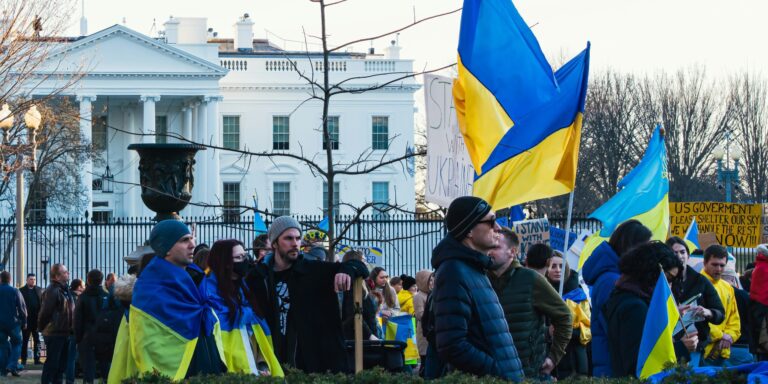Recent editorials from prominent U.S. and international outlets have sharply critiqued former President Donald Trump’s policies, particularly in relation to his approach to presidential pardons, the war in Ukraine, steel tariffs, and his handling of issues affecting vulnerable children. The opinions from these various media outlets reflect the polarized nature of Trump’s legacy, underscoring both domestic and international concerns regarding his actions and decisions while in office.
One of the most prominent critiques comes from The Washington Post, which raised alarms about Trump’s extensive use of presidential pardons. The editorial argues that Trump’s actions in granting pardons, particularly to allies and supporters within the MAGA movement, have undermined the integrity of the rule of law. The piece points to individuals convicted of serious offenses, such as bribery, corruption, and violent crimes connected to the Capitol riot, who were pardoned despite their criminal behavior. This move, according to the editorial, was not only a reward for political loyalty but also an attempt to solidify Trump’s support base, rather than a demonstration of justice or fairness. Critics of this practice contend that it represents a dangerous precedent where legal accountability can be circumvented based on political motivations.
Meanwhile, The New York Times focused on Trump’s approach to the ongoing war in Ukraine, offering a dire warning about the consequences of a U.S. withdrawal from the conflict. The editorial cautioned that abandoning Ukraine would embolden Russian President Vladimir Putin, potentially allowing him to expand his influence over Eastern Europe and jeopardize the stability of global democracy. The piece urged Trump to adopt a more balanced approach, advocating for diplomatic pressure on both sides of the conflict to reach a cease-fire while ensuring that Western support for Ukraine remains strong. This stance aligns with the broader concern among foreign policy experts that a shift away from U.S. support for Ukraine could embolden authoritarian regimes around the world, including in places like China and North Korea.
In another piece, The Wall Street Journal analyzed Trump’s support of Nippon Steel’s acquisition of U.S. Steel, linking it to his broader trade policy, specifically his plan to double steel tariffs. The editorial warned that this move could have significant economic consequences, particularly for the American manufacturing sector. While Trump’s tariffs were initially aimed at protecting U.S. industries, critics argue that the increase in steel tariffs could drive up prices for domestic manufacturers, thereby increasing costs and potentially leading to job losses in industries reliant on affordable steel. By backing the Nippon Steel deal, Trump was seen as further complicating an already contentious issue, risking the economic interests of many American workers who would bear the brunt of these policy decisions.
Across the Atlantic, The Guardian took aim at Trump’s domestic policies concerning children and vulnerable youth. The editorial condemned the administration’s actions, particularly in relation to immigration, highlighting the controversial family separations at the U.S.-Mexico border as one of the most egregious examples. Additionally, the piece noted the reduction of child welfare services and the weakening of labor protections during Trump’s tenure as evidence of a broader disregard for the well-being of America’s youth. Critics argue that Trump’s policies, often framed as measures to secure the nation’s borders, had detrimental long-term effects on children, further exacerbating inequalities and putting vulnerable families at risk.
Finally, The Dallas Morning News voiced its concerns about Trump’s stance on Russia’s aggression and the global fight for democracy. The editorial called on Trump to confront Russia’s military actions more directly and to reaffirm U.S. support for Ukraine as a critical piece of the global struggle for democratic values. The piece emphasized the need for strong leadership from the U.S. to maintain its credibility on the world stage and ensure that authoritarianism does not gain a foothold in Europe. According to the editorial, Ukraine’s resistance to Russian aggression serves as a symbol for democratic ideals, and abandoning that fight could have far-reaching implications for global stability and the preservation of democratic institutions worldwide.
These editorials represent a broad range of concerns from both domestic and international perspectives regarding Trump’s policies and their lasting impact on global affairs. While his supporters may argue that many of these actions were aimed at advancing America’s interests, critics continue to contend that his decisions often undermined the nation’s democratic institutions, global alliances, and commitment to human rights. As Trump remains a central figure in U.S. politics, the debates over his policies continue to shape discussions about his legacy and the future direction of the country.



